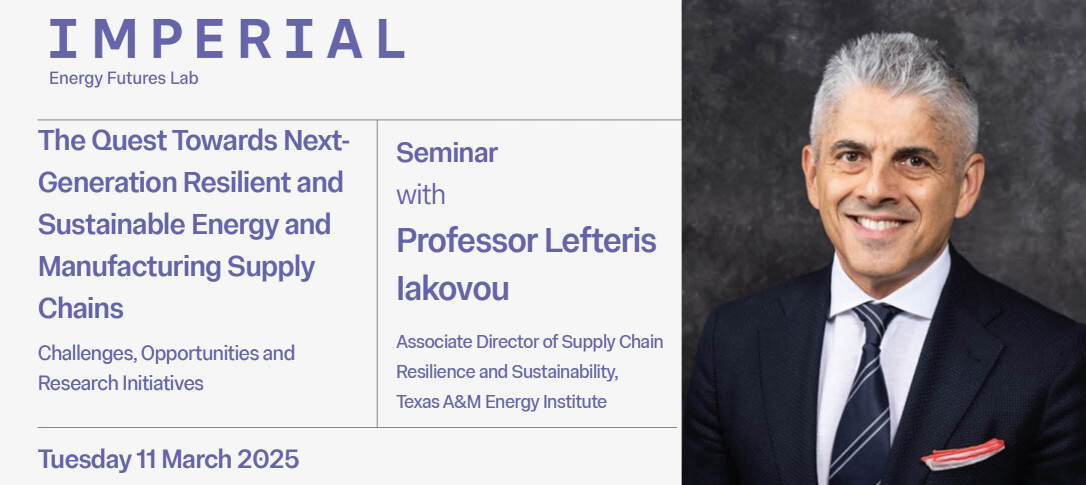
The Quest Towards Next-Generation Resilient and Sustainable Energy and Manufacturing Supply Chains
Challenges, Opportunities and Research Initiatives
Supply chains have become one of the most high-profile topics of discussion and strategy in corporate boardrooms, the media, and government circles. Since the beginning of 2020, and in contrast to the prior era of unfettered globalization, the pandemic, supplier disruptions, extreme weather, trade wars and other geopolitical events have underlined the emergence of a new volatile, uncertain, complex and ambiguous (VUCA) era for supply chains to compete. These stresses further revealed the fragility of today’s “built-to-break” supply chain, resulting in an increased interest in supply chain resilience and agility – the ability to prepare for and quickly adjust to sudden disruptive changes that can negatively affect supply chain performance and business continuity.
Open challenges include: (i) how to reassess the trade-offs of resiliency, agility, competitiveness, and sustainability, and (ii) how to design next-generation data-driven supply chains that have the posture to respond and recover from “black swan” disruptive events. Here, we will attempt to provide a systematic framework of how to address these challenges in a holistic end-to-end supply chain paradigm. We show how we can engineer the supply chain beyond balance sheet considerations by integrating cost-competitive resilience metrics. Large-scale research initiatives are presented to highlight how we can ensure that the manufacturing and energy industrial base have sufficient surge capacity during disruptions, while supporting firm-level competitiveness and national security.
Speaker
Professor Lefteris Iakovou is the Associate Director of Supply Chain Resilience and Sustainability at the Texas A&M Energy Institute; he holds the Harvey Hubbell Endowed Professorship of Industrial Distribution at the College of Engineering, and is the Co-Director of the Global Value Chains Program at the Mosbacher Institute for Trade, Economics and Public Policy of the Bush School of Government Service and Public Service at the Texas A&M University.
His research interests include supply chain management, resilience and sustainability of integrated energy and manufacturing supply chains, agrifood logistics, applied operations research, intermodal and maritime logistics, global logistics and cross-border trade facilitation, manufacturing logistics, production systems, strategy development and policymaking. He has authored or co-authored over 250 research publications, 6 books and textbooks on energy and manufacturing supply chains and logistics, including the acclaimed “Breakthrough Supply Chains: How Nations and Companies and Thrive and Prosper in an Uncertain World”. He holds a Ph.D. degree in Operations Research and Industrial Engineering from Cornell University, Ithaca, NY. Previously, he was an Assistant/Associate Professor at the Department of Industrial Engineering of the University of Miami, Coral Gables, FL, and the former Head of the Department of Industrial Management and the School of Mechanical Engineering, at the Aristotle University of Thessaloniki, Greece. He is an internationally recognized supply chain management academic scholar and leader, and has led large-scale supply chain institutes and consortia funded by corporations and governmental agencies alike, in the U.S. and the European Union.
About Energy Futures Lab
Energy Futures Lab is one of seven Global Institutes at Imperial College London. The institute was established to address global energy challenges by identifying and leading new opportunities to serve industry, government and society at large through high quality research, evidence and advocacy for positive change. The institute aims to promote energy innovation and advance systemic solutions for a sustainable energy future by bringing together the science, engineering and policy expertise at Imperial and fostering collaboration with a wide variety of external partners.